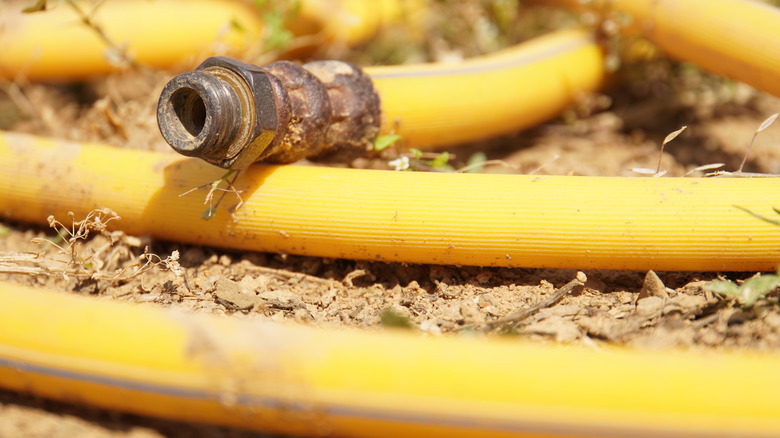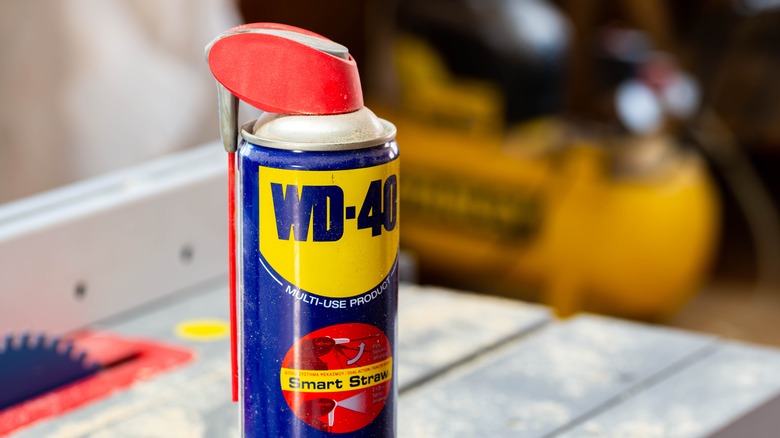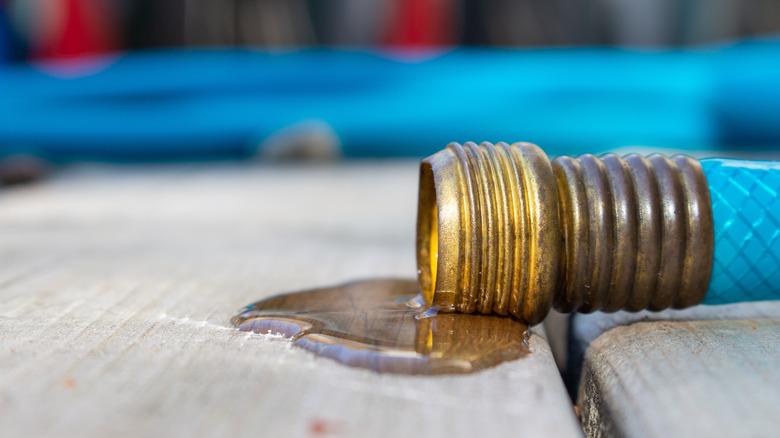How A Can Of WD-40 Will Keep Your Garden Hose Corrosion-Free
Nothing is worse than unwinding your hose for the first time in early spring only to notice that the end has corroded. This puts a damper on the growing season, since it will be difficult to screw onto a spigot or screw any attachments on. You can't jump right into it and start gardening — instead, depending on the level of corrosion, you may have to run to the hardware store and pick up a new hose. But you can avoid this very scenario with a little help from a WD-40 can. You can help maintain your garden supplies by routinely covering the metal hose end with a quick squirt of WD-40.
Hoses seem like they need little to no maintenance, and that's true for the most part. But since their ends are made from metal, they're susceptible to rust and corrosion if stored improperly. Corroded ends will make it difficult, if not impossible, to attach the hose to sprayers or sprinklers, forcing you to replace them. Luckily, WD-40 can stop that from happening.
How to do it & some precautions
There are all sorts of reasons why your hose rusted. Your water might have too low of a pH level, you may have sulfate or iron in your water, or maybe sediment got into the ring. Whatever the reason, you need to protect your garden gear from rust. To protect your hose ends, grab a can of WD-40 and carefully spray the metal ring. A little goes a long way, so you don't have to douse it. Spraying the hose rings once every two months should suffice. If you're storing it in the garage or shed over winter, spraying it before locking it up will be beneficial.
However, there are a few things to keep in mind before doing this hack. As WD-40 is not safe for consumption, you want to ensure the lubricant is rubbed in or sufficiently dried before using. This is especially true if you let your pets drink from the hose or water fruits and vegetables with it, as you don't want its toxins dribbling down and mingling with the water. But if you wipe it dry, that risk should be alleviated.
Why this works
While most people think WD-40 is a handy lubricant, its main purpose is to displace water. The proof is in the name — its official title is "Water Displacement, 40th Formula." It was originally used commercially by aerospace contractor Convair to protect metal missiles from rusting. And if it's good enough for an aerospace contractor, it's good enough for your garden hose.
Since WD-40's main purpose is to displace water, its coating effectively makes whatever you spray water-resistant. And since you need moisture to create corrosion or rust, the product protects that from happening. For even more added protection, you can get a specialty WD-40 product, like the WD-40 Specialist Corrosion Inhibitor. It's specially formulated to block rust from occurring in more extreme conditions, such as places with high humidity or lots of rain. This is the perfect pick for anyone who only wants to spray their hose ends annually, as its formula can stay active for up to one year.


